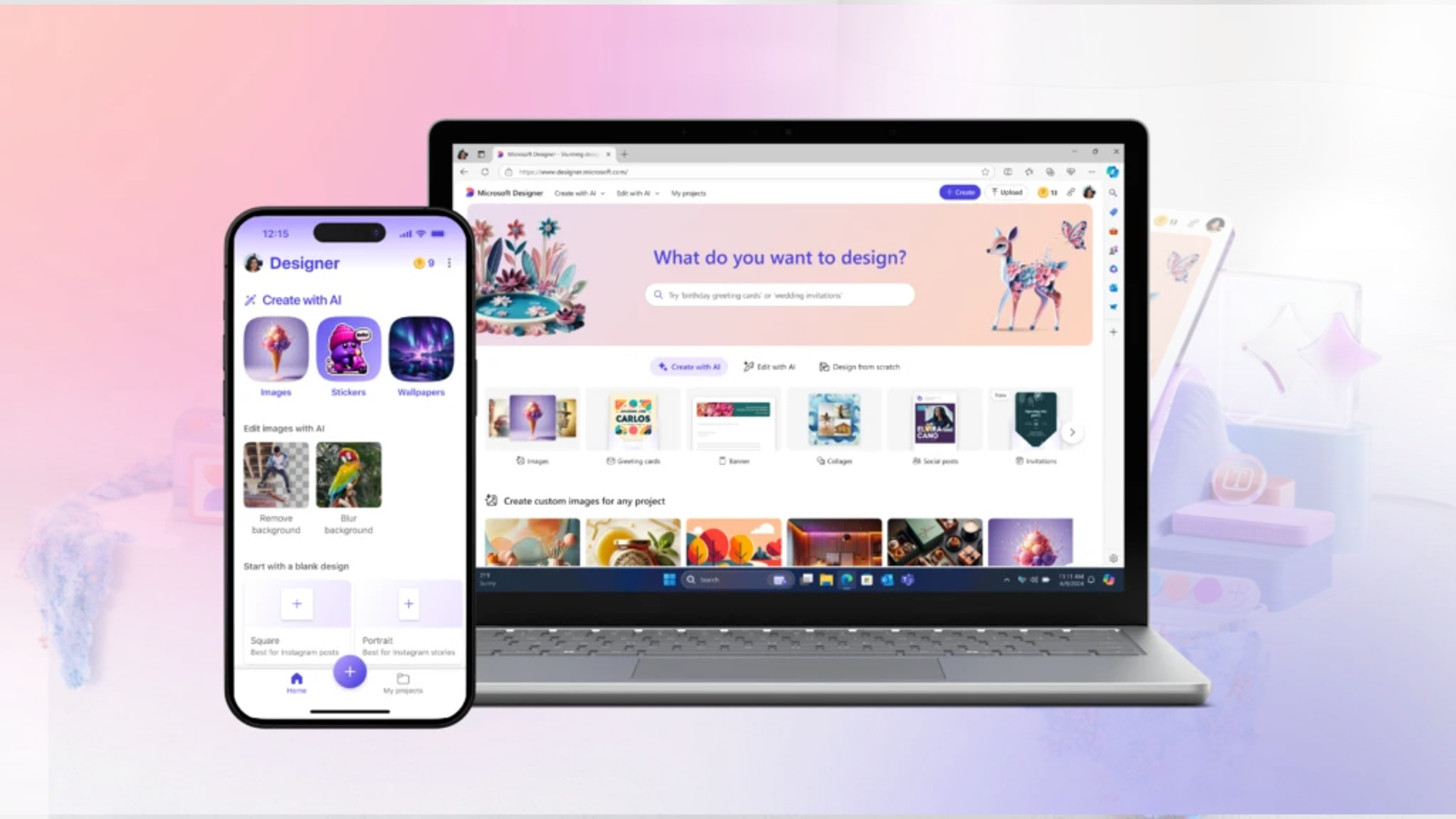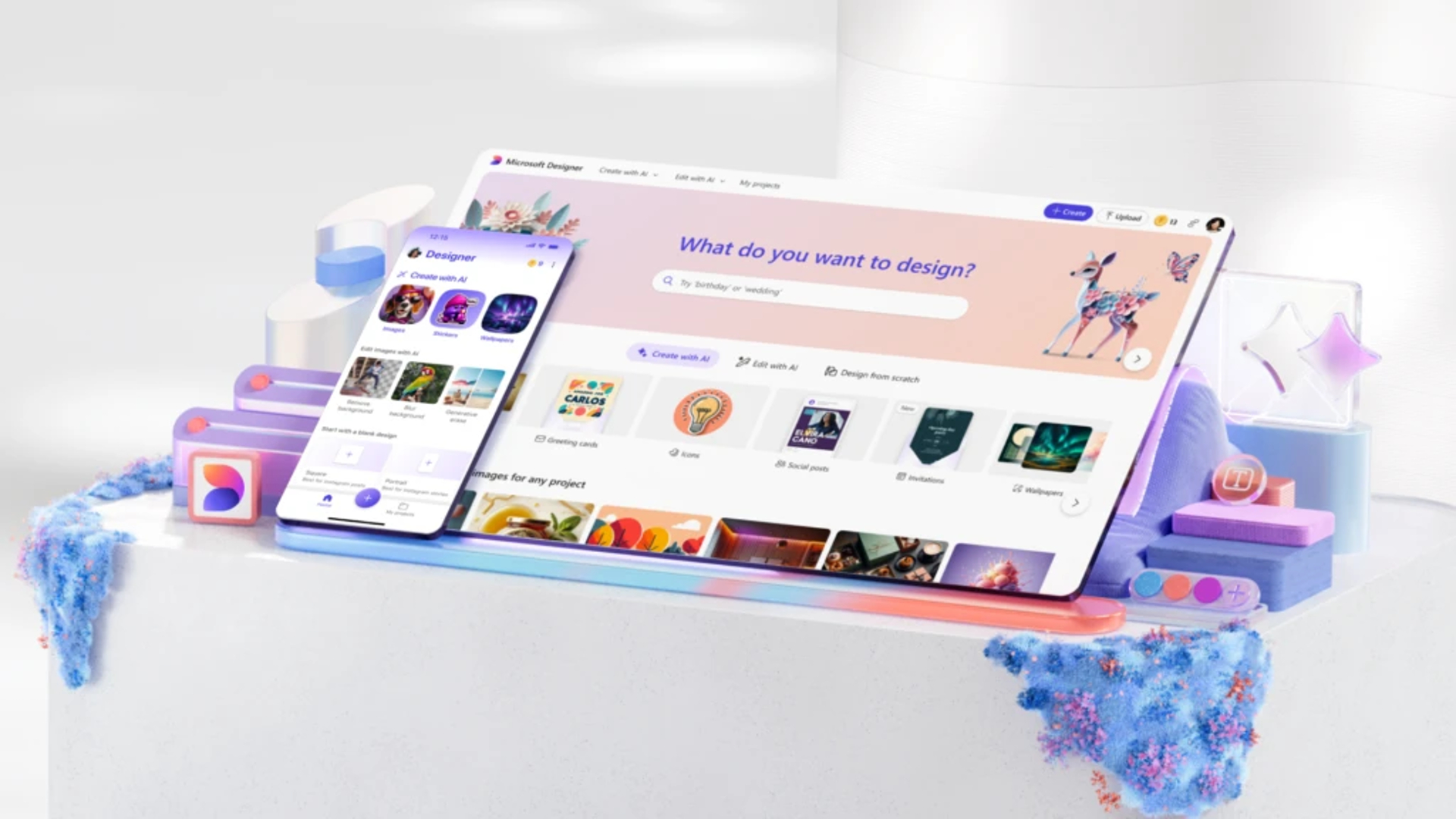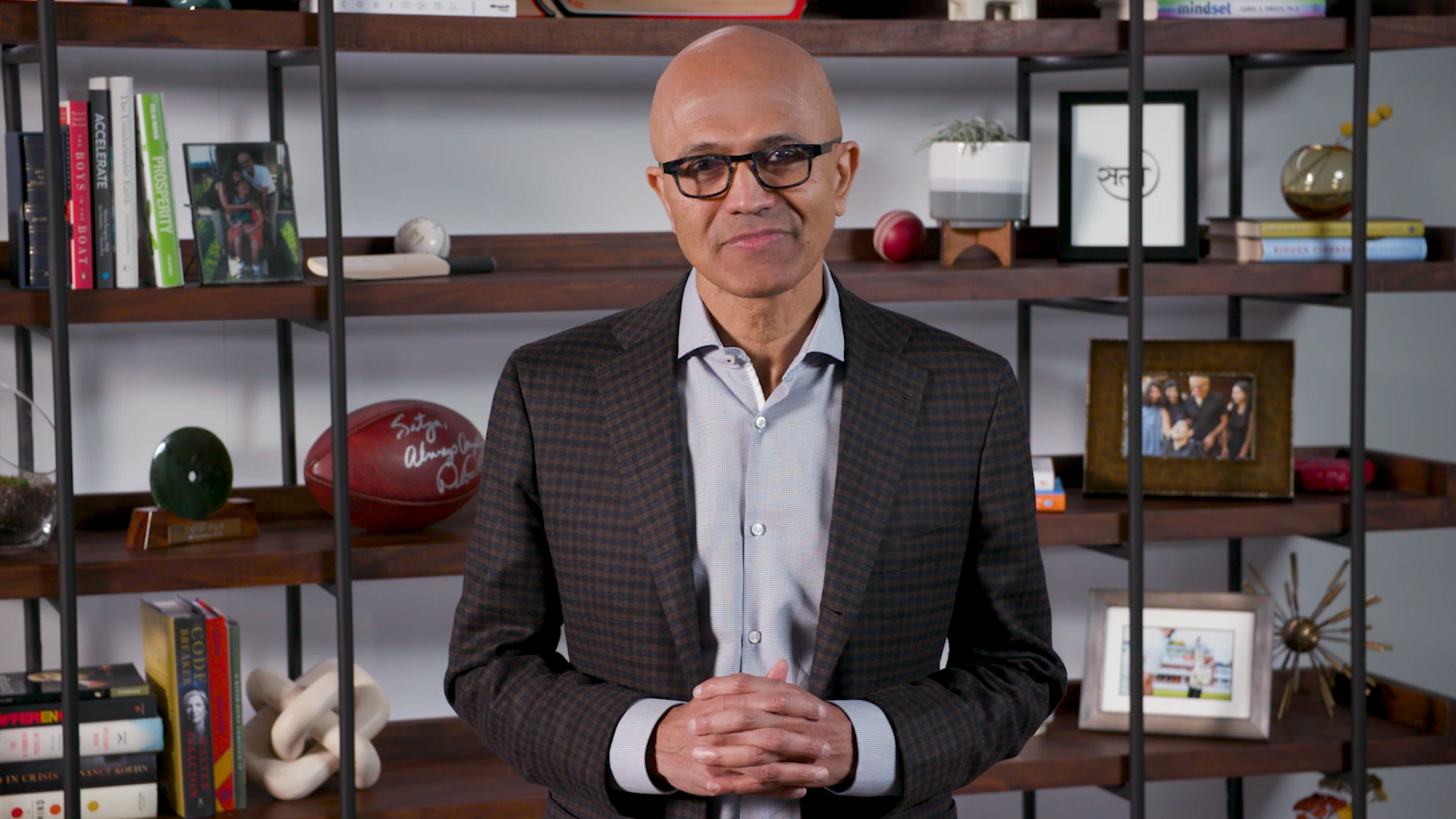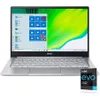Microsoft brings controversial AI app to iPhone and Android devices
Microsoft Designer turns over a new leaf with creativity on the go for iOS and Android users

Sign up to receive The Snapshot, a free special dispatch from Laptop Mag, in your inbox.
You are now subscribed
Your newsletter sign-up was successful
Microsoft's AI ambitions continue as yesterday the company announced the arrival of a free mobile app for Designer — the same app that provides the image generation capabilities of the Windows, mobile, and web-based Microsoft Copilot.
Microsoft Designer is an AI-enhanced graphic design and image editing tool similar to Adobe Express or Canva. With Designer you can use AI to generate images from scratch, alter images and photos in seconds, and design documents, invitations, flyers, and more from a selection of premade, customizable templates.
In a post to the Microsoft 365 Blog, Corporate VP Sumit Chauhan highlights several changes heading to the app, including seamless integration with Microsoft Word, PowerPoint, and Photos, support for over 80 languages, and the release of new apps for Windows, iOS, and Android devices.
However, while there's plenty to celebrate over Microsoft's AI image tool being made broadly available, the news doesn't come without its controversies. Designer has something of a checkered history to contend with when it comes to one of the largest AI controversies of 2024 and concerns from inside the company over "Systemic issues" with the content it produces.
Microsoft Designer's sketchy past
First announced in October 2022, Microsoft Designer was to become the latest tool in the Microsoft 365 utility belt that used AI to supercharge the creative process and speed up graphic design tasks for businesses and individual users.
Microsoft began the Designer preview in April 2023, adding several generative AI features to the tool that empowered users of all skill levels to create better copy and visual results using natural language inputs.
Microsoft was aware of these vulnerabilities and the potential for abuse.
Shane Jones, Microsoft Software Engineer
However, in January of 2024, Designer found itself at the center of a storm of controversy after being identified as one of the tools used to generate sexually explicit images of celebrities like Taylor Swift which soon went viral on X/Twitter.
Sign up to receive The Snapshot, a free special dispatch from Laptop Mag, in your inbox.
To make matters worse, Microsoft's principal software engineering lead Shane Jones would publicly highlight his attempts to inform Microsoft and OpenAI of vulnerabilities within Designer from December 2023.
Jones stated that "Microsoft was aware of these vulnerabilities and the potential for abuse," the company responded by saying it had "investigated the employee’s report and confirmed that the techniques he shared did not bypass our safety filters in any of our AI-powered image generation solutions."

Despite Microsoft's claims, Jones persisted in his pleas and was eventually directed to field his concerns with OpenAI (creators of the Dall-E 3 AI model used for Designer's image generation) directly — something he claims yielded no response.
Jones' concerns would manifest just one month later as AI-generated images created by Designer would flood social media, prompting a US bill to tackle nonconsensual sexual deepfakes, and causing Microsoft CEO Satya Nadella to comment on the situation as both "Alarming and terrible."

Microsoft's response to the abuse of its graphic design tool was (excuse the pun) swift, promptly closing the loophole that allowed users to generate the, now viral, sexual imagery.
There's no clear indication that the vulnerabilities highlighted by Shane Jones and the loophole in question are one and the same, but the event did lead to Microsoft doubling down on security measures — with the company eventually implementing AI Prompt Shielding across its services in March that seeks to clamp down on efforts to jailbreak its AI models in the future.
Outlook
Since Microsoft's response to the abuse of its graphic design tool, Designer has been controversy-free. However, the app remains a prime example of the need for developers of AI systems to pay close attention to potential misuse, and as a reminder that there exists a population of users who will attempt to circumvent those measures at every turn.
Microsoft Designer is now in a much better place in terms of security and usability, marking this week's wider release of the software as a new leaf and a chance to start over once again.
Microsoft Designer is available on the web, iOS, Android, and Windows for free, offering a powerful and intuitive toolset to those looking to achieve ambitious graphic design results in a fast and efficient manner.
More from Laptop Mag
- These ChatGPT-powered smart glasses are the best case for wearable AI yet
- What Google failed to learn from Microsoft's most offensive AI chatbot
- Can journalism assisted by artificial intelligence be trusted?

Rael Hornby, potentially influenced by far too many LucasArts titles at an early age, once thought he’d grow up to be a mighty pirate. However, after several interventions with close friends and family members, you’re now much more likely to see his name attached to the bylines of tech articles. While not maintaining a double life as an aspiring writer by day and indie game dev by night, you’ll find him sat in a corner somewhere muttering to himself about microtransactions or hunting down promising indie games on Twitter.









